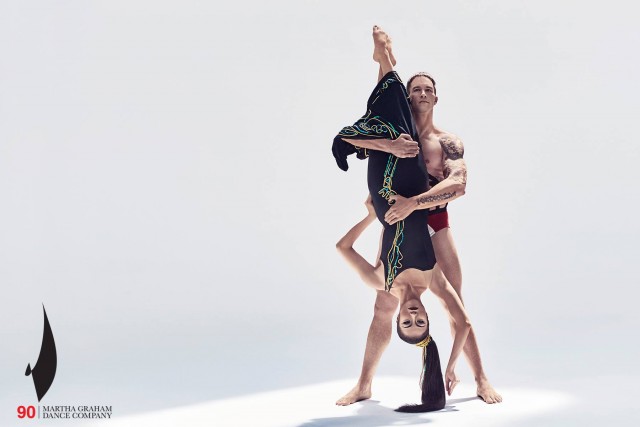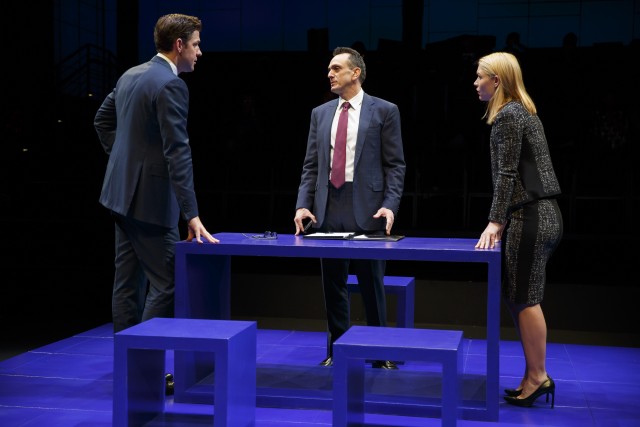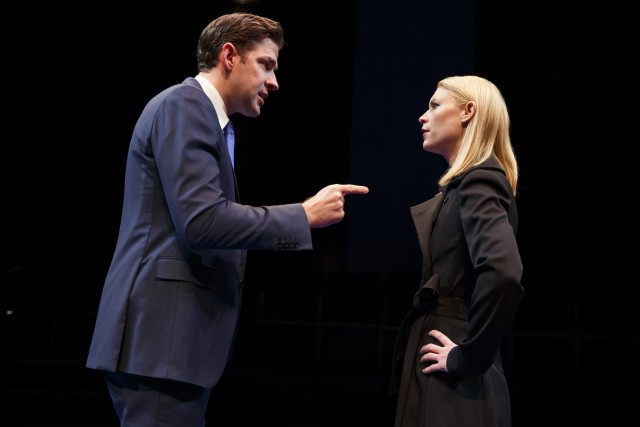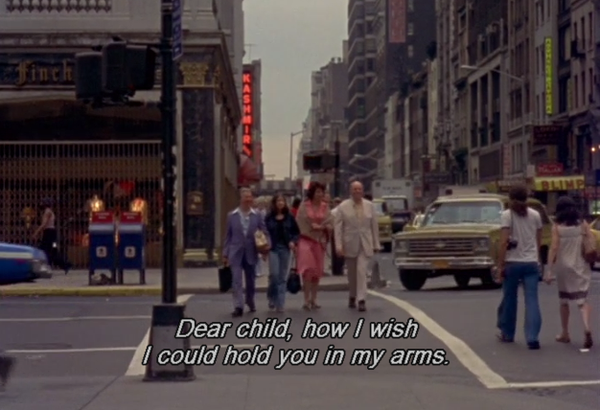
Chantal Akerman combines footage of 1970s New York with letters from her mother in NEWS FROM HOME
NEWS FROM HOME (Chantal Akerman, 1977)
BAMcinématek, BAM Rose Cinemas
30 Lafayette Ave. between Ashland Pl. & St. Felix St.
Saturday, April 16, 7:00 & 9:00
Series continues through May 1
718-636-4100
www.bam.org
 In 1971, twenty-year-old Chantal Akerman moved to New York City from her native Belgium, determined to become a filmmaker. Teaming up with cinematographer Babette Mangolte, she made several experimental films, including Hotel Monterey and La Chambre, before moving back to Belgium in 1973. But in 1976 she returned to New York City to make News from Home, a mesmerizing work about family and dislocation, themes that would be prevalent throughout her career. The film consists of long, mostly static shots, using natural sound and light, depicting a gray, dismal New York City as cars move slowly down narrow, seemingly abandoned streets, people ride the graffiti-laden subway, workers and tourists pack Fifth Ave., and the Staten Island Ferry leaves Lower Manhattan. The only spoken words occur when Akerman, in voice-over, reads letters from her mother, Natalia (Nelly) Akerman, sent during Chantal’s previous time in New York, concerned about her daughter’s welfare and safety. “I’m glad you don’t have that job anymore and that you’re liking New York,” Akerman reads in one letter. “People here are surprised. They say New York is terrible, inhuman. Perhaps they don’t really know it and are too quick to judge.” Her mother’s missives often chastise her for not writing back more often while also filling her in on the details of her family’s life, including her mother, father, and sister, Sylviane, as well as local gossip. Although it was not meant to be a straightforward documentary, News from Home now stands as a mesmerizing time capsule of downtrodden 1970s New York, sometimes nearly unrecognizable when compared to the city of today. The film also casts another light on the relationship between mother and daughter, which was recently highlighted in Akerman’s final film, No Home Movie, in which Chantal attempts to get her mother, a Holocaust survivor, to open up about her experiences in Auschwitz. Nelly died shortly after filming, and Akerman committed suicide the following year, only a few months after No Home Movie played at several film festivals (and was booed at Locarno). News from Home takes on new meaning in light of Akerman’s end, a unique love letter to city and family and to how we maintained connections in a pre-internet world. News from Home is screening April 16 at BAM Rose Cinemas as part of the BAMcinématek series “Chantal Akerman: Images between the Images,” which continues through May 1 with such other films by Akerman as Golden Eighties, Histoires d’Amerique, From the Other Side, and her masterpiece, Jeanne Dielman, 23, Quai du Commerce, 1080 Bruxelles. In addition, Anthology Film Archives will host “Chantal Akerman x 2,” showing No Home Movie and Là-Bas April 15-21.
In 1971, twenty-year-old Chantal Akerman moved to New York City from her native Belgium, determined to become a filmmaker. Teaming up with cinematographer Babette Mangolte, she made several experimental films, including Hotel Monterey and La Chambre, before moving back to Belgium in 1973. But in 1976 she returned to New York City to make News from Home, a mesmerizing work about family and dislocation, themes that would be prevalent throughout her career. The film consists of long, mostly static shots, using natural sound and light, depicting a gray, dismal New York City as cars move slowly down narrow, seemingly abandoned streets, people ride the graffiti-laden subway, workers and tourists pack Fifth Ave., and the Staten Island Ferry leaves Lower Manhattan. The only spoken words occur when Akerman, in voice-over, reads letters from her mother, Natalia (Nelly) Akerman, sent during Chantal’s previous time in New York, concerned about her daughter’s welfare and safety. “I’m glad you don’t have that job anymore and that you’re liking New York,” Akerman reads in one letter. “People here are surprised. They say New York is terrible, inhuman. Perhaps they don’t really know it and are too quick to judge.” Her mother’s missives often chastise her for not writing back more often while also filling her in on the details of her family’s life, including her mother, father, and sister, Sylviane, as well as local gossip. Although it was not meant to be a straightforward documentary, News from Home now stands as a mesmerizing time capsule of downtrodden 1970s New York, sometimes nearly unrecognizable when compared to the city of today. The film also casts another light on the relationship between mother and daughter, which was recently highlighted in Akerman’s final film, No Home Movie, in which Chantal attempts to get her mother, a Holocaust survivor, to open up about her experiences in Auschwitz. Nelly died shortly after filming, and Akerman committed suicide the following year, only a few months after No Home Movie played at several film festivals (and was booed at Locarno). News from Home takes on new meaning in light of Akerman’s end, a unique love letter to city and family and to how we maintained connections in a pre-internet world. News from Home is screening April 16 at BAM Rose Cinemas as part of the BAMcinématek series “Chantal Akerman: Images between the Images,” which continues through May 1 with such other films by Akerman as Golden Eighties, Histoires d’Amerique, From the Other Side, and her masterpiece, Jeanne Dielman, 23, Quai du Commerce, 1080 Bruxelles. In addition, Anthology Film Archives will host “Chantal Akerman x 2,” showing No Home Movie and Là-Bas April 15-21.
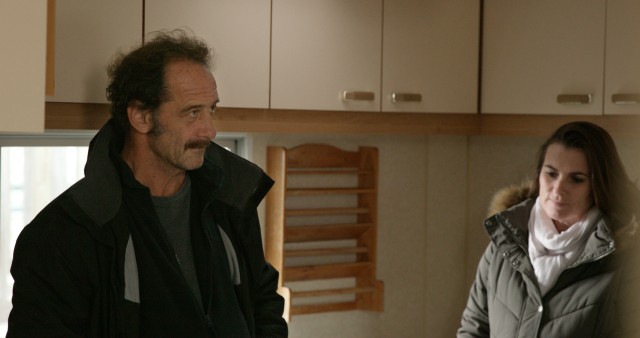
 “The ultimate measure of a man is not where he stands in moments of comfort and convenience, but where he stands at times of challenge and controversy,” the Rev. Dr. Martin Luther King Jr. famously said. In Stéphane Brizé’s The Measure of a Man, Vincent Lindon excels as a husband and father who is trying his best to survive in a changing world, fraught with challenge and controversy, that has seemingly turned its back on him. In an extraordinary performance embodying the calm before a storm that never comes, Lindon plays Thierry Taugourdeau, a working-class man who has been out of a job since the factory where he toiled for more than twenty years closed twenty months ago. He meets with job counselors, takes classes, interviews over Skype, and joins his fellow laid-off colleagues to figure out what to do next, but it is hard for him to have to start over in his fifties while trying to support his wife (Karine De Mirbeck) and take care of a teenage son who has cerebral palsy, played by Matthieu Schaller, who does have the neurological disorder. When Thierry finally does find employment, it’s not exactly a dream job, but he attempts to soldier on even when he is asked to do things that are against his moral and ethical fiber. “We all get to choose,” he says when his fellow former factory workers talk about taking action against the company that laid them off. “In my case, if only for my mental health, I prefer to draw a line and move on. Does that make me a coward?”
“The ultimate measure of a man is not where he stands in moments of comfort and convenience, but where he stands at times of challenge and controversy,” the Rev. Dr. Martin Luther King Jr. famously said. In Stéphane Brizé’s The Measure of a Man, Vincent Lindon excels as a husband and father who is trying his best to survive in a changing world, fraught with challenge and controversy, that has seemingly turned its back on him. In an extraordinary performance embodying the calm before a storm that never comes, Lindon plays Thierry Taugourdeau, a working-class man who has been out of a job since the factory where he toiled for more than twenty years closed twenty months ago. He meets with job counselors, takes classes, interviews over Skype, and joins his fellow laid-off colleagues to figure out what to do next, but it is hard for him to have to start over in his fifties while trying to support his wife (Karine De Mirbeck) and take care of a teenage son who has cerebral palsy, played by Matthieu Schaller, who does have the neurological disorder. When Thierry finally does find employment, it’s not exactly a dream job, but he attempts to soldier on even when he is asked to do things that are against his moral and ethical fiber. “We all get to choose,” he says when his fellow former factory workers talk about taking action against the company that laid them off. “In my case, if only for my mental health, I prefer to draw a line and move on. Does that make me a coward?”



